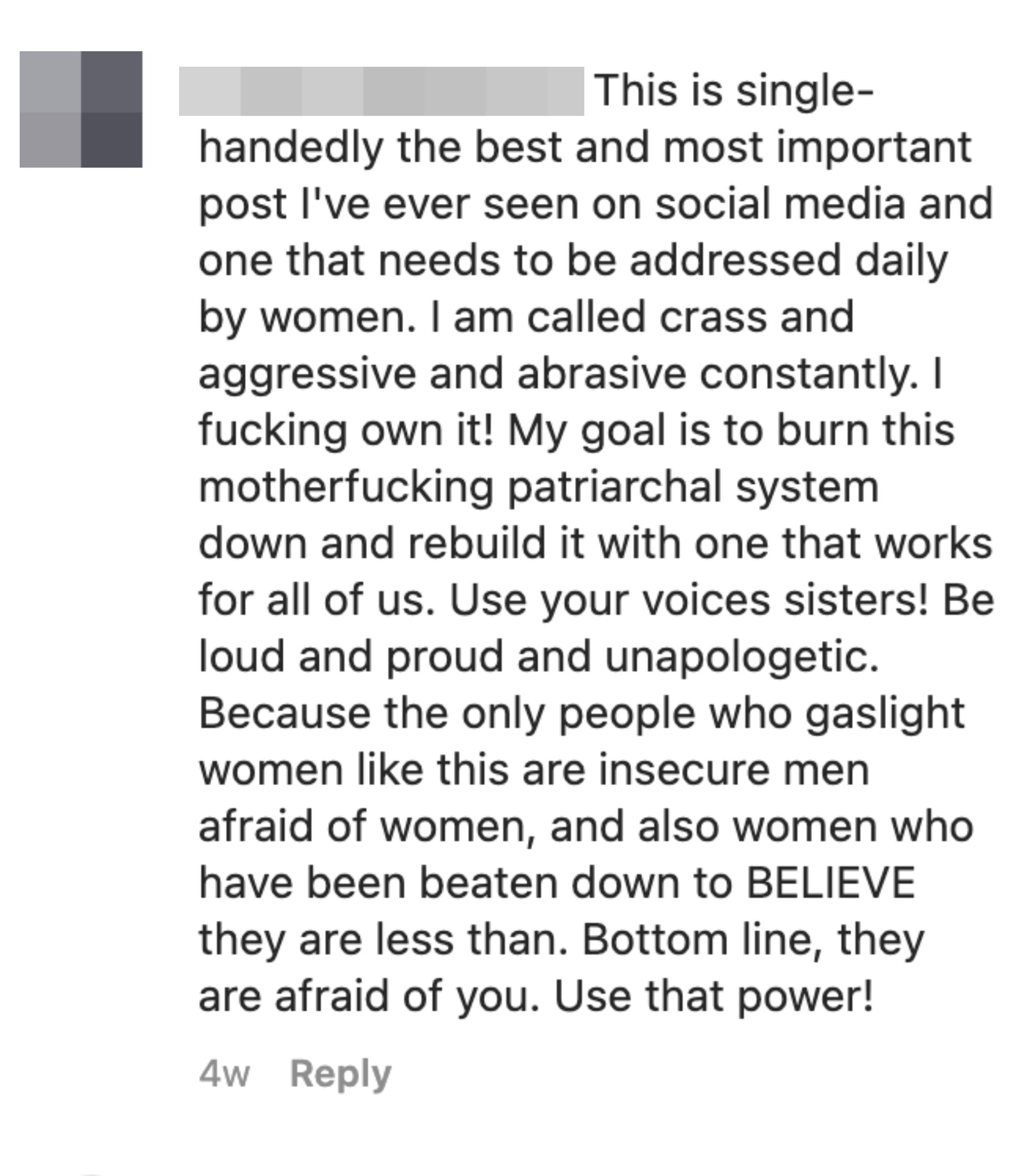During lockdown in 2020, illustrator Lainey Molnar started sharing her personal experiences as a woman through art. Now, her comics — which have expanded outside of herself to address themes like gender relations and double standards in society — have been shared by millions.
"It all started with my first-hand experiences but after the community started growing, my content turned into less of a life story and more of a conversation," Lainey told BuzzFeed. "I facilitate discussions over all kinds of topics related to womanhood, listen to stories from all over the world, and get inspired by other creators too."
As a self-described "middle class, slim, white woman," Lainey feels as though her "personal experiences only go so far." Which is why she highlights not only her reality navigating through life but the experiences of women of color as well. And through this, her audience of over one million followers finds common ground to start conversations about how women from different backgrounds are treated in society when compared to their male counterparts.
Her work tackles expectations women face that men aren't as largely burdened with, such as taking care of the household, children, or the higher standard of their physical appearances both before and after birth.
Lainey told BuzzFeed that she feels most inclined to challenge "the patriarchal conditioning that there is only one right way to be a woman: it is to be slim, feminine, submissive, modest, being a wife and a mother, [and] following tradition," she said. "But even when someone checks all the boxes, they will be judged and discriminated against. This entire system is extremely problematic, there is simply no winning."
Through her viral illustrations, though, she creates a space for all genders to recognize and confront these indifferences. "They're perfect to quite literally show a mirror to society," Lainey said. "[It's a] ripple-wave of conversation. Under my posts, between women in living rooms or wine bars; between women who follow me and their male partners or family members. The amount of women who feel seen and empowered to talk about things considered taboo. It's magic."
And it's this acknowledgment, Lainey says, of larger issues women experience on a daily basis that connects them. "The division created by society sometimes disables women to realize that millions of us go through the same exact things."
"We are put in a position to compete with other women in the Perfection Olympics and talking about certain matters — or making certain life choices — are stigmatized and not talked about," she continued. "I like to think that my approach to bring these things to light is a straightforward way to start discussions women can bond over as shared experiences."
One peek at her comment section shows proof of an ongoing and much-needed dialogue from those who feel seen through her work:

